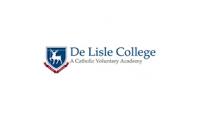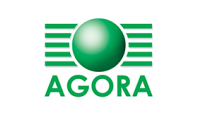Chief Coroner |
is the judicial Head of Coroner Services in England and Wales, responsible for setting national standards of service, training Coroners and their officers and other staff and issuing guidance to them. The Chief Coroner has a number of roles but his main responsibilities are to: |
Conclusion |
is the decision the Coroner (or jury) reaches at the end of an inquest about how someone died. The conclusion is recorded on a 'record of an inquest' form which includes the legal 'determination' and 'findings' (see below). It may comprise one of the following 'short form' conclusions: accident or misadventure; alcohol/drug related; industrial disease; lawful/unlawful killing; natural causes; open; road traffic collision; stillbirth; or suicide. An open conclusion may be given if there is insufficient evidence to enable the Coroner or the jury to reach one of the other conclusions. Sometimes the Coroner or jury may record a more detailed 'narrative' conclusion about the death. |
Coroner's Office |
includes any member of the office of the Coroner who is investigating the death. It could be the Coroner, Area Coroner, Assistant Coroner, a Coroner's officer, or any other member of staff in the office. It also includes a Coroner's officer or other staff member who is based on different premises to the Coroner they support. |
Determination |
is the decision (reached by the Coroner or jury as appropriate) about the identity of the deceased and how, when and where he or she came by his or her death (as required under Sections 5 and 10 of the Coroners and Justice Act 2009). |
Findings |
are the particulars about a death that the Coroner establishes to enable the death to be registered (under the Births and Deaths Registration Act 1953). |
Forensic Post Mortem Examinations |
are carried out by Home Office registered forensic pathologists to assist in the investigation of violent or suspicious deaths. These pathologists work within regional group practices, which are independent of the Police, Coroners and the Home Office. They may be self employed or employed by a university hospital or a hospital trust. |
Inform |
means giving information by leaflet, letter, email, telephone call, via a website or in person. |
Inquest or Inquest Hearing |
is a fact finding inquiry in court (or alternative premises) conducted by a Coroner to establish who has died, and how, when and where the death occurred. It forms part of the Coroner's investigation. An inquest does not establish any matter of criminal or civil liability. It does not seek to blame anyone or apportion blame between people or organisations. |
Interested Person |
is identified in Section 47(2) of the Coroners and Justice Act 2009 as follows: |
Investigation |
is the process by which the Coroner establishes who has died, and how, when and where the death occurred. It may include a post mortem examination and an inquest. |
Next of Kin |
means the person identified by the Coroner or Coroner's office to act as the main point of contact to receive information. |
Other Type of State Detention |
refers to where detainees are compulsorily detained by a public authority within the meaning of Section 6 of the Human Rights Act 1998(http://www.legislation.gov.uk/ukpga/1998/42/section/(6), such as those in a mental hospital/establishment or immigration centre. |
Pathologist |
is a medical professional who specialises in the diagnosis of disease after death and identifying the causes of death. He or she carries out post mortem examinations. |
Post Mortem Examination |
is a detailed medical examination of the body that takes place after death and is generally conducted by a Pathologist. The purpose of the post mortem examination is to establish the medical cause of death. |
Pre Inquest Review |
is a hearing (usually held in public) that the Coroner may hold in advance of the inquest in order to decide matters such as the scope and date of the inquest and which witnesses and evidence he or she plans to call and use. The Coroner may also set out what else he or she needs in order to complete preparations for the inquest. |
Witness |
is someone who gives evidence, or whose statement is read, at an inquest under oath or affirmation in order to establish who the deceased was, and how, when and where he or she died. |
Working Day |
means any day, except where a designated bank holiday, between Monday and Friday. |
Glossary
For the latest in news and events from JHMT, please see our social media below.
The Joe Humphries Memorial Trust Reg. Charity No. 1152647
Website by Cuttlefish

































































